
Nomuka Island: The Tranquil Jewel of Tonga
Nomuka Island, a serene paradise in the beautiful South Pacific, is part of the Ha'apai group in Tonga. This island is perfect for those who seek a peaceful retreat away from the hustle and bustle of modern life. Imagine pristine beaches, crystal-clear waters, and lush greenery – all waiting to be explored and enjoyed. The island's rich history adds to its charm. It was once a significant site during Captain Cook's voyages in the 18th century. Today, visitors can explore remnants of this historical past, including ancient ruins and shipwrecks. Nature lovers will appreciate the island's abundant flora and fauna, which include unique bird species and vibrant coral reefs teeming with marine life. Nomuka is also known for its warm and welcoming local community. Visitors can experience traditional Tongan culture through its music, dance, and cuisine. Don't miss the chance to partake in a local feast, where you can enjoy fresh seafood and tropical fruits. With its natural beauty and cultural richness, Nomuka Island offers a truly unique and unforgettable travel experience.
Local tips in Nomuka Island
- Bring cash: There are no ATMs on the island, so make sure to bring enough cash for your stay.
- Respect local customs: Show respect for the local culture by dressing modestly and asking permission before taking photos of people.
- Plan your visit around the weather: The best time to visit is during the dry season from May to October.
- Explore by foot: The island is small and easily explored by walking, allowing you to take in its natural beauty up close.
- Learn some basic Tongan phrases: Knowing a few words in the local language will enhance your interaction with the friendly locals.
Nomuka Island: The Tranquil Jewel of Tonga
Nomuka Island, a serene paradise in the beautiful South Pacific, is part of the Ha'apai group in Tonga. This island is perfect for those who seek a peaceful retreat away from the hustle and bustle of modern life. Imagine pristine beaches, crystal-clear waters, and lush greenery – all waiting to be explored and enjoyed. The island's rich history adds to its charm. It was once a significant site during Captain Cook's voyages in the 18th century. Today, visitors can explore remnants of this historical past, including ancient ruins and shipwrecks. Nature lovers will appreciate the island's abundant flora and fauna, which include unique bird species and vibrant coral reefs teeming with marine life. Nomuka is also known for its warm and welcoming local community. Visitors can experience traditional Tongan culture through its music, dance, and cuisine. Don't miss the chance to partake in a local feast, where you can enjoy fresh seafood and tropical fruits. With its natural beauty and cultural richness, Nomuka Island offers a truly unique and unforgettable travel experience.
When is the best time to go to Nomuka Island?
Iconic landmarks you can’t miss
Mapu'a Vaea Blowholes
Experience the breathtaking spectacle of the Mapu'a Vaea Blowholes, a natural wonder in Tonga where ocean waves create spectacular geysers.
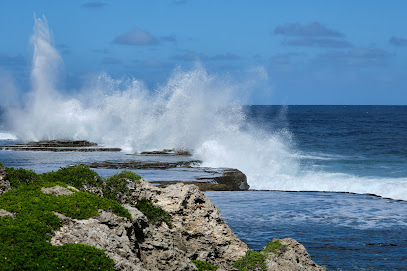
Royal Palace of Tonga
Explore the Royal Palace of Tonga, a majestic symbol of Tongan heritage and culture nestled in the heart of Nuku'alofa.
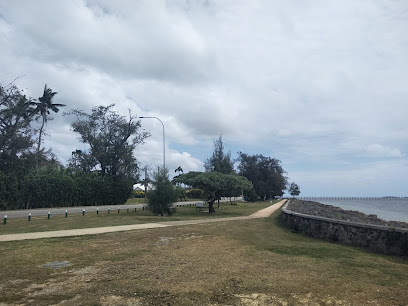
Anahulu Cave
Explore Anahulu Cave in Haveluliku, Tonga – a stunning natural attraction with crystal-clear waters and captivating limestone formations.
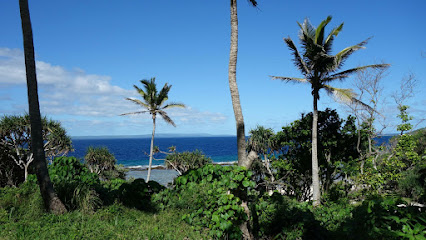
Royal Tombs
Explore the Royal Tombs of Tonga, a serene historical landmark rich in cultural heritage and royal history, nestled in the heart of Nuku'alofa.
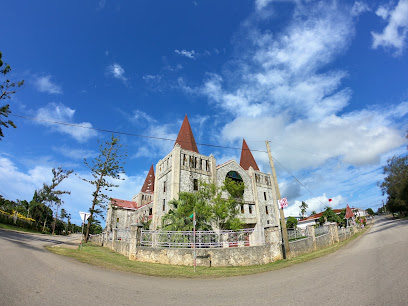
Tsunami Rock
Explore the captivating Tsunami Rock in Kala'au, Tonga - a stunning symbol of nature's power with breathtaking views and rich cultural significance.
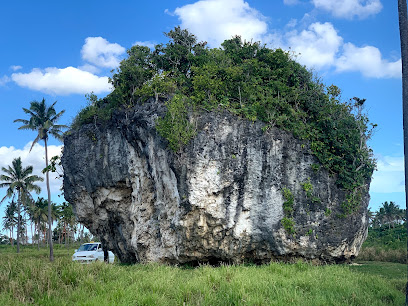
Ancient Tonga
Explore the ancient wonders of Tonga, where rich cultural heritage meets stunning landscapes in the heart of Nuku'alofa.
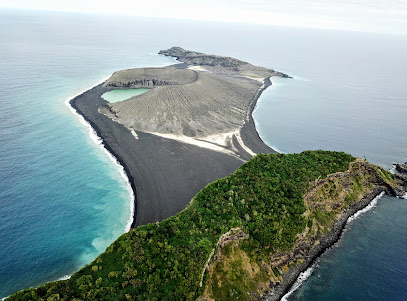
Ha'amonga 'a Maui Trilithon
Experience the ancient wonder of Ha'amonga 'a Maui Trilithon, a stunning historical landmark showcasing Tongan culture and breathtaking landscapes.
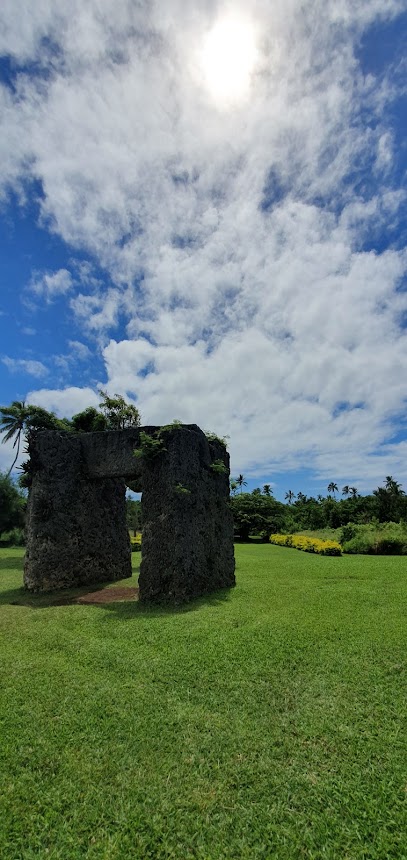
Captain Cook Landing Site
Experience history at the Captain Cook Landing Site in Alaki, Tonga, where the legendary explorer first touched the shores of this beautiful island.
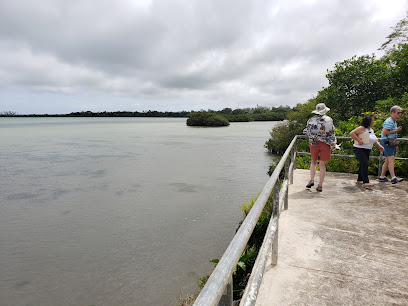
Paepae o Tele'a
Explore the historical significance of Paepae o Tele'a in Mu'a, Tonga, where ancient stories and architectural wonders await your discovery.
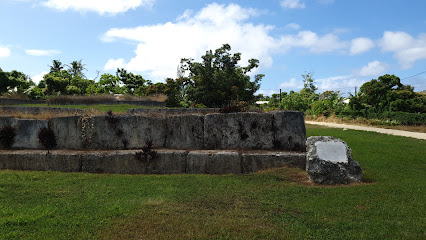
Maka Fa'akinanga
Explore the historical charm and stunning views of Maka Fa'akinanga, a must-visit landmark in Niutoua, Tonga, for every traveler.
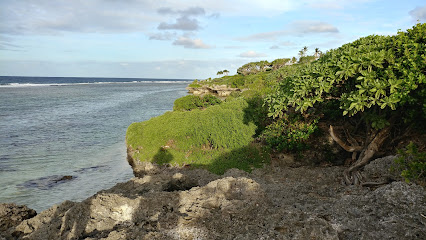
Essential places to dine
Coffee Post
Discover the essence of Tongan coffee culture at Coffee Post in Maufanga - where every cup tells a story.
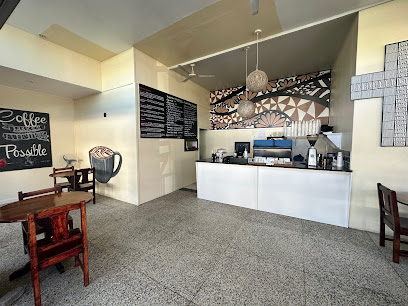
Friends Cafe
Experience authentic Tongan flavors at Friends Cafe, where delicious cuisine meets warm hospitality in Nuku'alofa.
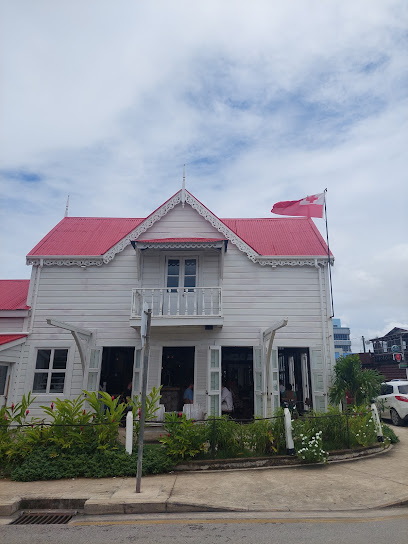
Cafe Escape
Discover Café Escape in Nuku'alofa – where every cup tells a story and every bite captures Tonga's culinary spirit.
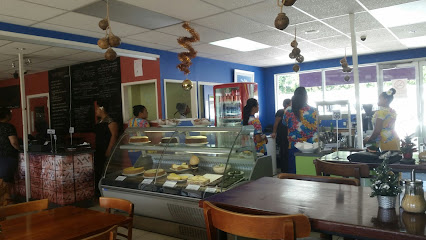
Billfish Bar and Restaurant
Experience Tonga's coastal charm at Billfish Bar and Restaurant – where fresh seafood meets vibrant nightlife in Nuku'alofa.
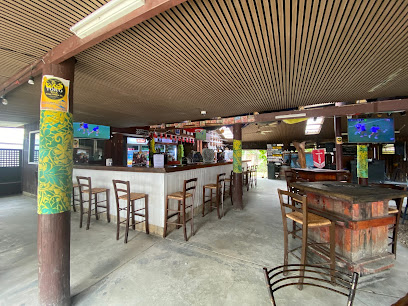
Chef Zero Restaurant
Experience authentic Tongan cuisine at Chef Zero Restaurant in Nuku'alofa, where every dish tells a story of local tradition and flavor.
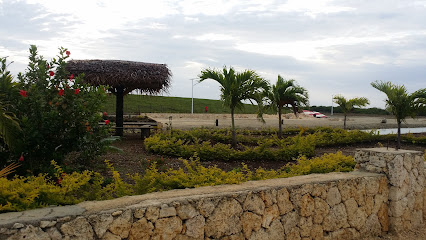
The TOP Restaurant and Lounge
Experience exquisite dining at The TOP Restaurant and Lounge in Nuku'alofa - where local flavors meet modern culinary artistry.
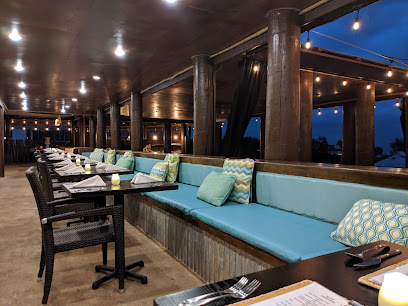
Mum's Cafe Nukualofa
Experience authentic Tongan cuisine at Mum's Cafe in Nuku'alofa – where local flavors meet warm hospitality.
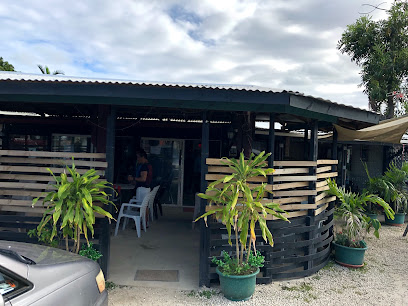
Lunarossa Deli
Discover Lunarossa Deli in Nuku'alofa for an authentic Italian culinary experience with delicious takeout options perfect for every traveler.
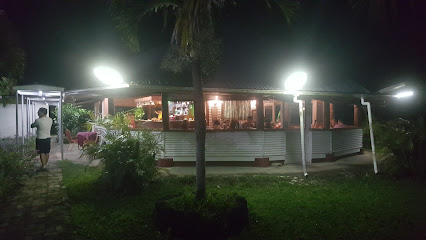
Young’s Kitchen
Experience authentic Tongan cuisine at Young’s Kitchen in Nuku'alofa – where local flavors meet warm hospitality.
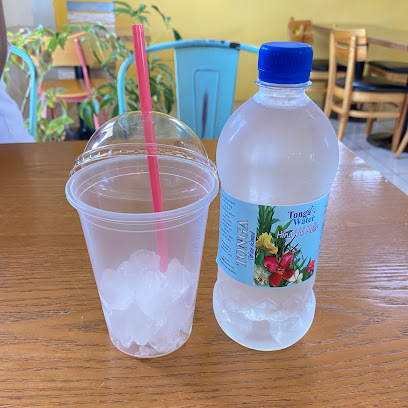
The Waterfront Cafe
Experience local flavors at The Waterfront Cafe in Nuku'alofa – where every bite tells a story amidst stunning ocean views.
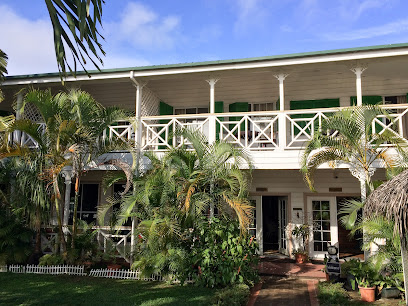
Nauti Ruby's Bar & Restaurant
Experience the vibrant atmosphere and delicious seafood at Nauti Ruby's Bar & Restaurant on Faua Wharf, Nuku'alofa.
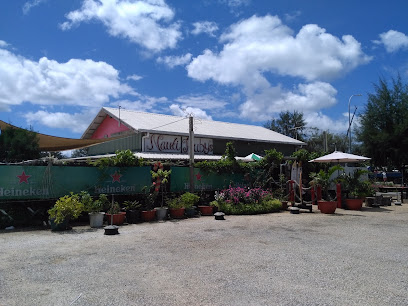
Sabrina's Chicken Vilovilo
Experience authentic Tongan barbecue at Sabrina's Chicken Vilovilo – where every bite tells a story.
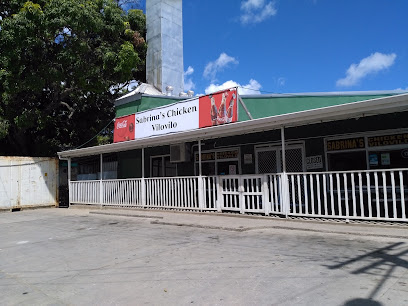
'Ofeina Restaurant
Experience authentic Tongan flavors at 'Ofeina Restaurant - a family-friendly dining destination that celebrates local cuisine.
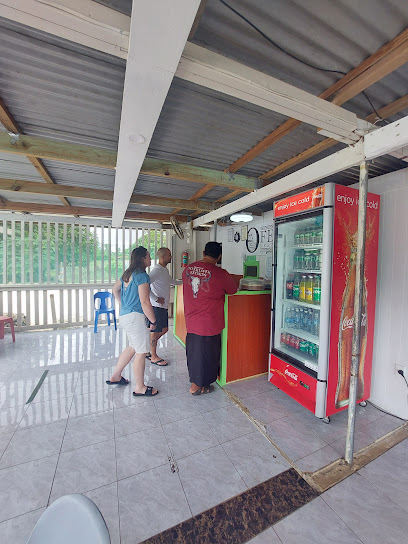
Big Mama's Bar
Experience vibrant island life at Big Mama's Bar on Pangaimotu Island—your gateway to relaxation, breathtaking views, and delicious local flavors.
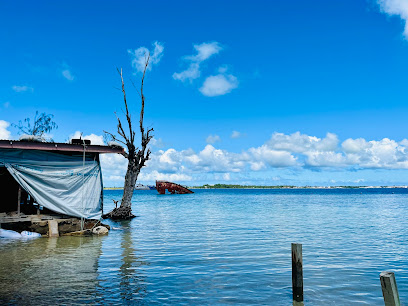
Talahiva Restaurant
Discover the flavors of Tonga at Talahiva Restaurant in Nuku'alofa – where traditional cuisine meets warm hospitality.
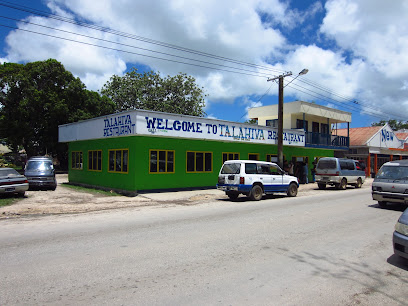
Markets, malls and hidden boutiques
Tanoa International Dateline Hotel
Discover the perfect blend of luxury and tradition at Tanoa International Dateline Hotel in Nuku'alofa, Tonga.

Talamahu Market
Explore Talamahu Market for a vibrant mix of fresh produce, local crafts, and authentic Tongan culture in the heart of Nuku'alofa.
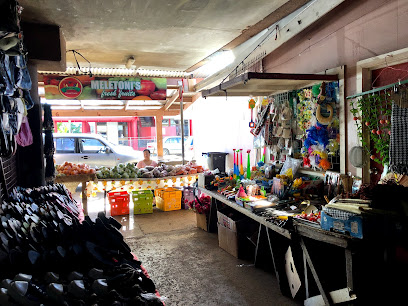
Vuna Wharf
Experience the beauty of Vuna Wharf in Nuku'alofa, Tonga, a lively marina with stunning views, local culture, and easy access to attractions.
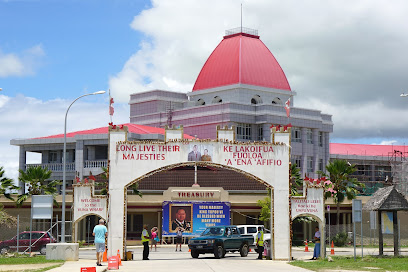
Winnies Bed & Breakfast
Discover the charm of Nuku'alofa at Winnies Bed & Breakfast, where authentic Tongan hospitality meets comfortable lodging.

Costlow Supermarket
Discover local flavors and essentials at Costlow Supermarket, the essential shopping stop for visitors in Pea, Tonga.
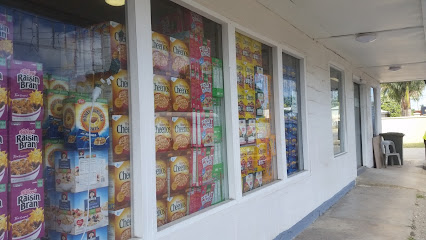
Molisi Supermarket
Discover the flavors of Tonga at Molisi Supermarket, a vibrant grocery store in Nuku'alofa offering fresh produce and local delicacies.
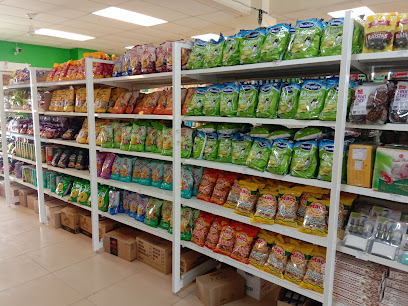
Hiki 'O Tonga
Experience the best of Tongan shopping and culture at Hiki 'O Tonga, where unique finds and friendly service await every visitor.
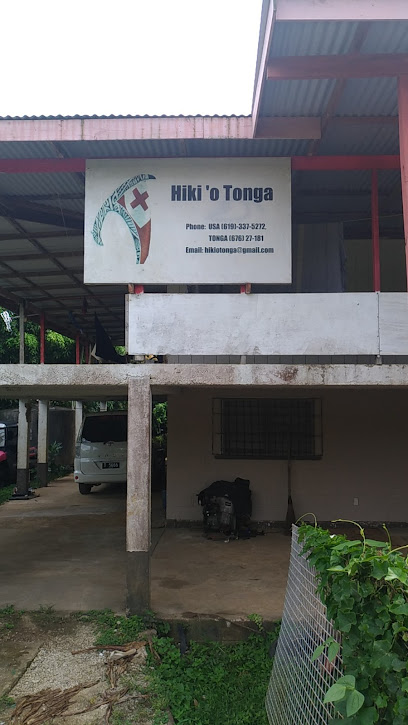
Backpackers Townhouse
Experience the warmth of Tongan hospitality at Backpackers Townhouse, your home away from home in Nuku'alofa.

EZ TONGA ONLINE SHOPPING
Experience the convenience of shopping in Tonga with EZ Tonga Online Shopping, where local products meet global accessibility.

Tungi Colonnade Hotel
Discover the charm of Tungi Colonnade Hotel in Nuku'alofa, where comfort meets Tongan hospitality amidst picturesque surroundings.

Si'i Kae Ola Supermarket
Experience the heart of Nuku'alofa at Si'i Kae Ola Supermarket, where local flavors meet everyday essentials for your Tongan adventure.
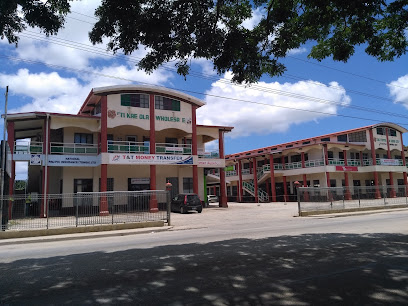
Langafonua Handicraft Centre and Gallery
Explore the vibrant Tongan culture through exquisite handicrafts at Langafonua Handicraft Centre and Gallery in Nuku'alofa.
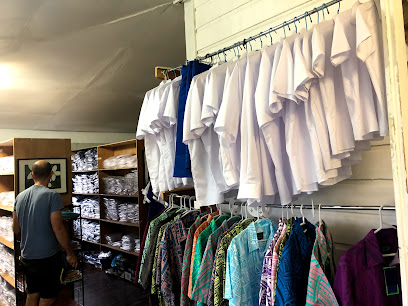
Friendly Island Bookshop
Explore the enchanting world of Tonga's literature at Friendly Island Bookshop, where stories of culture and history come alive.
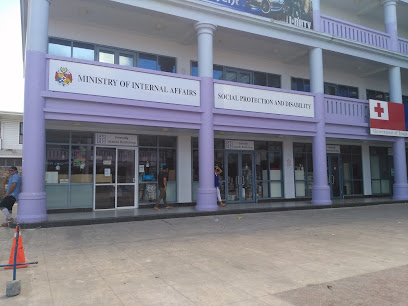
Fakafeta'i Store
Experience the local charm at Fakafeta'i Store in Nuku'alofa, where friendly service and quality goods await every traveler.
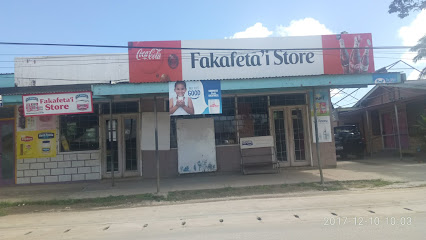
Leiola
Experience the finest selection of local and international beers at Leiola, Nuku'alofa's premier beer store for enthusiasts and casual drinkers alike.
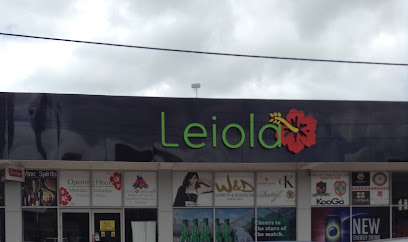
Essential bars & hidden hideouts
Tanoa International Dateline Hotel
Discover comfort and culture at Tanoa International Dateline Hotel, your gateway to the beauty of Tonga.

Little Italy Hotel
Discover the flavors of Italy in Nuku'alofa at Little Italy Hotel, where authentic cuisine meets Tongan hospitality in a picturesque setting.

Friends Cafe
Discover the heart of Tongan hospitality at Friends Cafe, where every meal is a celebration of local flavors and warm service.
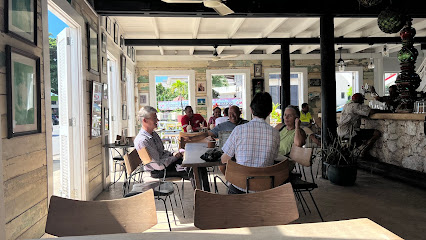
Cafe Escape
Experience the authentic flavors of Tonga at Cafe Escape, a cozy restaurant in Nuku'alofa, offering a delightful menu of local and international dishes.
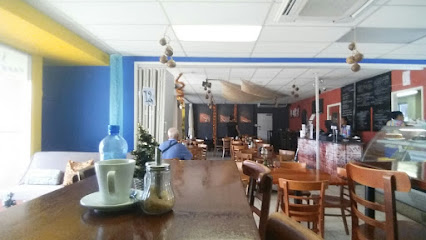
Billfish Bar and Restaurant
Discover the flavors of Tonga at Billfish Bar and Restaurant, where fresh seafood meets vibrant culture in a captivating setting.
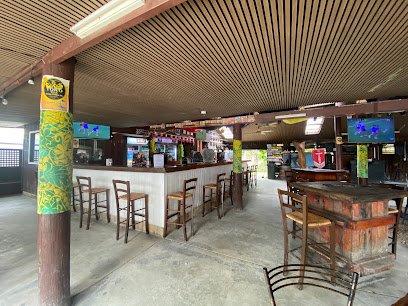
Seaview Lodge
Discover the enchanting beauty of Tonga at Seaview Lodge, where relaxation meets adventure in a serene oceanfront setting.

Chef Zero Restaurant
Experience the rich flavors of Tonga at Chef Zero Restaurant in Nuku'alofa, a culinary haven for every traveler.
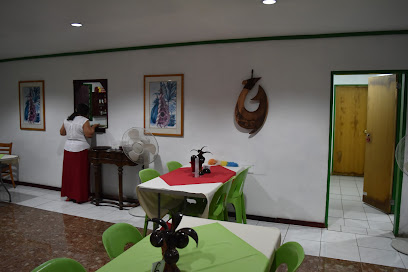
The TOP Restaurant and Lounge
Experience authentic Tongan cuisine at The TOP Restaurant and Lounge, where local flavors and stunning views create the perfect dining atmosphere.
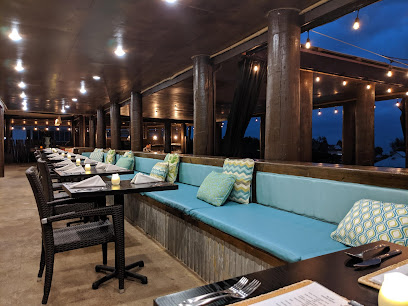
'Oholei Beach Resort
Discover 'Oholei Beach Resort in Tonga - a perfect blend of relaxation, culture, and adventure amidst stunning natural beauty.
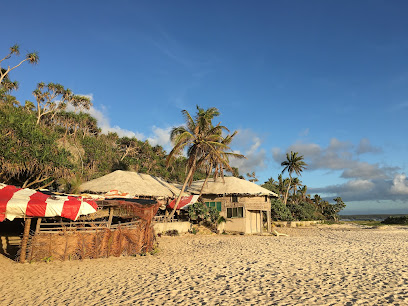
Mum's Cafe Nukualofa
Explore the vibrant culinary scene of Nuku'alofa with a visit to Mum's Cafe, offering authentic Tongan dishes and a warm atmosphere.
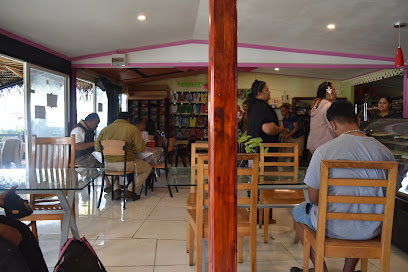
Vuna Wharf
Experience the serene beauty of Vuna Wharf in Nuku'alofa, Tonga, where stunning sunsets and vibrant marine life await.
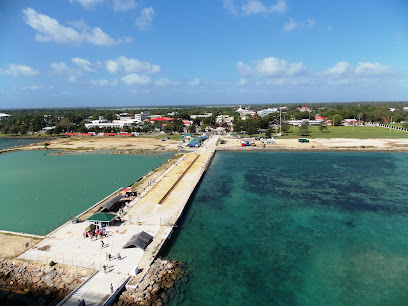
Lunarossa Deli
Discover the flavors of Tonga at Lunarossa Deli, where authentic local cuisine meets a delightful takeout experience in Nuku'alofa.
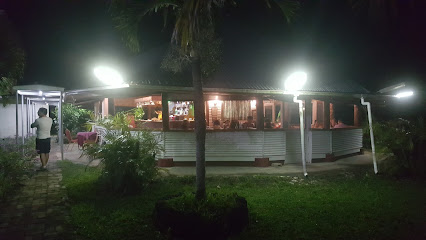
Ngutulei Bar & Restaurant
Discover the essence of Tongan cuisine at Ngutulei Bar & Restaurant, offering fresh seafood and a vibrant atmosphere in Nuku'alofa.
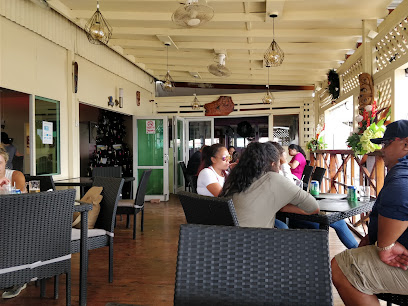
Young’s Kitchen
Experience the authentic flavors of Tonga at Young's Kitchen in Nuku'alofa, where fresh ingredients and traditional recipes create a culinary delight.
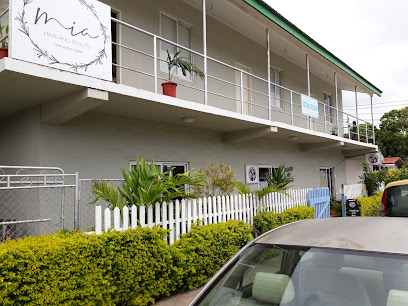
Local Phrases about Nomuka Island
-
- HelloMalo e lelei
[mah-loh eh leh-leh] - GoodbyeNofo a
[noh-foh ah] - YesIo
[ee-oh] - NoʻIkai
[ee-kai] - Please/You're welcomeFakaʻilonga
[fah-kah-ee-lohn-gah] - Thank youMālō
[mah-loh] - Excuse me/SorryFakamolemole
[fah-kah-moh-leh-moh-leh] - How are you?ʻEkuha a?
[eh-koo-hah ah] - Fine. And you?Ko e meʻa lelei. ʻO a?
[koh eh meh-ah leh-lei. oh ah] - Do you speak English?Ko e lea fakapālangi?
[koh eh leh-ah fah-kah-pah-lahn-gee] - I don't understandʻIkai haʻele
[ee-kai hah-eh-leh]
- HelloMalo e lelei
-
- I'd like to see the menu, pleaseʻOku ou fiema kumi, fakamolemole
[oh-koo oh fee-eh-mah koo-mee, fah-kah-moh-leh-moh-leh] - I don't eat meatʻIkai au ʻai meʻa
[ee-kai ow ah-ee meh-ah] - Cheers!Tokoni!
[toh-koh-nee] - I would like to pay, pleaseʻOku ou fiema fakapau, fakamolemole
[oh-koo oh fee-eh-mah fah-kah-pow, fah-kah-moh-leh-moh-leh]
- I'd like to see the menu, pleaseʻOku ou fiema kumi, fakamolemole
-
- Help!Tokoni!
[toh-koh-nee] - Go away!Fili ki tua!
[fee-lee kee too-ah] - Call the Police!Fakatokoni ki he polisi!
[fah-kah-toh-koh-nee kee heh poh-lee-see] - Call a doctor!Fakatokoni ki he fofonga!
[fah-kah-toh-koh-nee kee heh foh-fohn-gah] - I'm lostʻOku ou ʻalu
[oh-koo oh ah-loo] - I'm illʻOku ou mate
[oh-koo oh mah-teh]
- Help!Tokoni!
-
- I'd like to buy...ʻOku ou fiema ke...
[oh-koo oh fee-eh-mah keh] - I'm just lookingʻOku ou ikai toki hoko
[oh-koo oh ee-kai toh-kee hoh-koh] - How much is it?Fai mai ha fakaʻeiki?
[fah-ee mai hah fah-kah-eh-ee-kee] - That's too expensiveʻOku lelei a ia
[oh-koo leh-lei ah ee-ah] - Can you lower the price?ʻIkai keava fakapau?
[ee-kai keh-ah-vah fah-kah-pow]
- I'd like to buy...ʻOku ou fiema ke...
-
- What time is it?Koe hua ha?
[koh-eh hoo-ah hah] - It's one o'clockKoe hua ha taha
[koh-eh hoo-ah hah tah-hah] - Half past (10)Taha ki ha hongofulu
[tah-hah kee hah hoh-ngoh-foo-loo] - MorningFōtunga
[foh-too-ngah] - AfternoonTokotaha
[toh-koh-tah-hah] - EveningPō
[poh] - YesterdayʻUa
[oo-ah] - TodayʻAho ni
[ah-hoh nee] - TomorrowʻApō
[ah-poh] - 1Taha
[tah-hah] - 2Fua
[foo-ah] - 3Tolu
[toh-loo] - 4Fā
[fah] - 5Nima
[nee-mah] - 6Ono
[oh-noh] - 7Fitu
[fee-too] - 8Valu
[vah-loo] - 9Hiva
[hee-vah] - 10Hongofulu
[hoh-ngoh-foo-loo]
- What time is it?Koe hua ha?
-
- Where's a/the...?Ko fe...?
[koh feh] - What's the address?Koe tuʻa ha?
[koh-eh too-ah hah] - Can you show me (on the map)?ʻIkai keava hange ki au?
[ee-kai keh-ah-vah hah-nghe kee ow] - When's the next (bus)?Ko e tuʻa e hoko hoko?
[koh eh too-ah eh hoh-koh hoh-koh] - A ticket (to ....)Tikite ki...
[tee-kee-teh kee]
- Where's a/the...?Ko fe...?
History of Nomuka Island
-
Nomuka Island, part of the Ha'apai group in Tonga, has a rich history that dates back to the early Polynesian settlers. The island was first inhabited over 3,000 years ago by Lapita people, who are considered the ancestors of modern Polynesians. Archaeological evidence, such as pottery shards and ancient tools, has been found on the island, providing a glimpse into the lives of these early settlers.
-
Nomuka Island first came into contact with Europeans in the 17th century. Dutch explorers Jacob Le Maire and Willem Schouten were among the first to visit in 1616. Later, in 1777, the island was visited by the famous British explorer Captain James Cook during his third voyage. Cook and his crew were welcomed by the islanders, and he named the island 'Rotterdam' after the Dutch city, although the name did not stick.
-
The 19th century brought significant changes to Nomuka Island with the arrival of Christian missionaries. In the 1830s, Methodist missionaries from the London Missionary Society arrived and began converting the local population to Christianity. The island became an important center for the spread of Methodism throughout Tonga. This religious influence is still evident today, with several churches on the island serving as important community centers.
-
During World War II, Nomuka Island played a strategic role due to its location in the South Pacific. The island was used by Allied forces as a refueling station for ships and submarines. Remnants of this period can still be seen today, including old bunkers and other military installations that dot the landscape, providing a poignant reminder of the island's role in the global conflict.
-
Nomuka Island is rich in cultural traditions that have been preserved and passed down through generations. The island is known for its traditional Tongan music, dance, and crafts. One of the most notable cultural practices is the 'Lakalaka,' a traditional Tongan dance that involves elaborate movements and is often performed during special ceremonies and celebrations. The islanders also engage in traditional weaving and carving, creating beautiful handicrafts that are highly valued both locally and internationally.
-
Nomuka Island, like much of Tonga, is vulnerable to natural disasters such as cyclones and earthquakes. The island has experienced several devastating cyclones over the years, including Cyclone Ian in 2014, which caused significant damage to homes and infrastructure. Despite these challenges, the resilience and spirit of the Nomuka people have always shone through, as they rebuild and continue to thrive in their island paradise.
Nomuka Island Essentials
-
Nomuka Island is part of the Ha'apai group in Tonga. The nearest international gateway is Fua'amotu International Airport on Tongatapu. From there, you can take a domestic flight to Lifuka Island, which is the main island of the Ha'apai group. From Lifuka, you can arrange a boat transfer to Nomuka. Another option is to take a ferry from Tongatapu to Lifuka and then onward to Nomuka, although this might take longer.
-
Nomuka Island is small and can be explored primarily on foot. For reaching remote areas, bicycles can be rented. There are no public buses, but local boats can be hired to visit nearby islets. Be sure to arrange transportation in advance as services can be irregular.
-
The official currency in Tonga is the Tongan Pa'anga (TOP). There are no ATMs on Nomuka Island, so it is essential to bring enough cash. Credit cards are not widely accepted, except perhaps at some larger establishments on Lifuka Island. Make sure to carry cash for all transactions on Nomuka.
-
Nomuka is generally safe for tourists. Petty crime is rare but being cautious is always advisable. Avoid leaving valuables unattended on the beach. There are no high-crime areas specifically targeting tourists. Use common sense and general travel precautions.
-
In case of emergency, contact the local authorities or the nearest police station. Medical facilities on Nomuka are basic, so for serious medical issues, evacuation to Tongatapu or Lifuka may be necessary. Always have travel insurance that covers medical emergencies and evacuation.
-
Fashion: Do dress modestly. Swimwear is acceptable on the beach but cover up when walking in the village. Religion: Do respect local customs and dress appropriately when visiting churches. Public Transport: Do arrange transportation in advance, as public options are limited. Greetings: Do greet locals with a smile and a slight nod. A handshake is also acceptable. Eating & Drinking: Do try local Tongan delicacies. Don’t refuse food or drink offered by locals, as it is considered impolite.
-
To experience Nomuka Island like a local, visit the local markets where you can purchase fresh fish and produce. Engage with the local community, as they are often very welcoming. Participate in traditional Tongan feasts and ceremonies if invited. Don't miss exploring the island’s historical sites, like ancient tombs and ruins, to get a glimpse of its rich past.
Nearby Cities to Nomuka Island
-
Things To Do in Ha'apai
-
Things To Do in Nuku'alofa
-
Things To Do in Foa
-
Things To Do in Pangai
-
Things To Do in Vava'u
-
Things To Do in Ha'ano
-
Things To Do in Kolovai
-
Things To Do in Eua
-
Things To Do in Levuka
-
Things To Do in Nausori
-
Things To Do in Suva
-
Things To Do in Rakiraki
-
Things To Do in Savusavu
-
Things To Do in Sigatoka
-
Things To Do in Labasa






